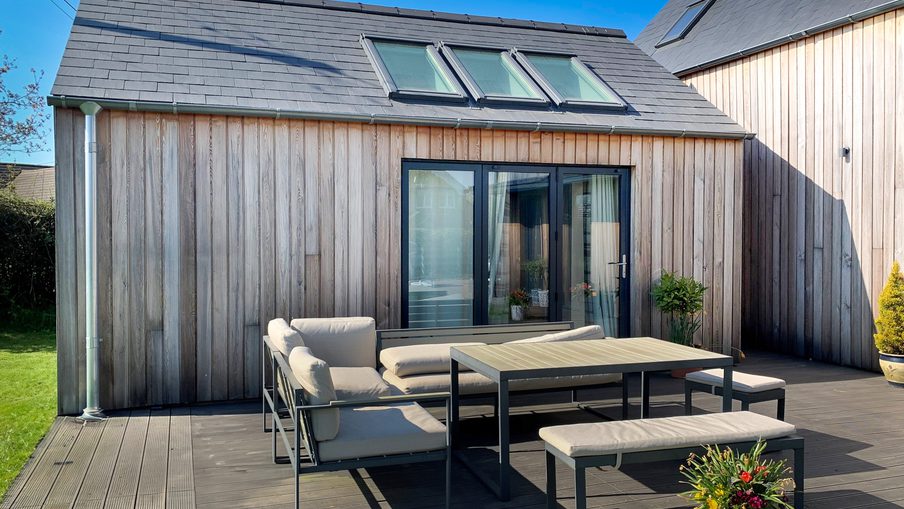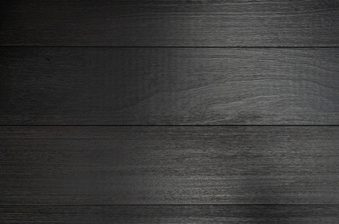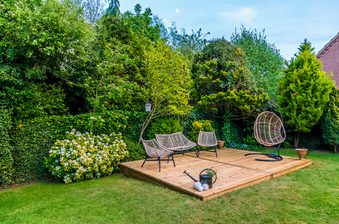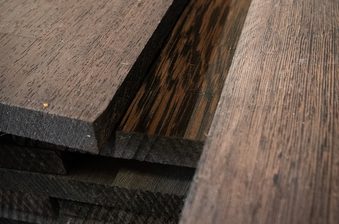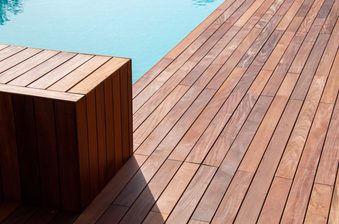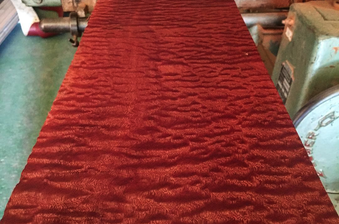It turns out George Clooney isn’t the only silver fox that has got people swooning — introducing grey timber cladding!
Most of us will be familiar with greyed garden fences, gates, decking and shed cladding — a tell-tale sign that the elements have taken their toll over time.
So it sounds a bit strange, doesn’t it, that this would become a desirable architectural feature?
Well, designers and stylish home improvers have given a new lease of life to grey timber. When done well, it adds versatile, characterful, natural style to any house or outdoor space.
Why is going grey so popular, how can the style work and how do I get my hands on some of this gorgeous grayscale cladding? Let’s take a deeper look…
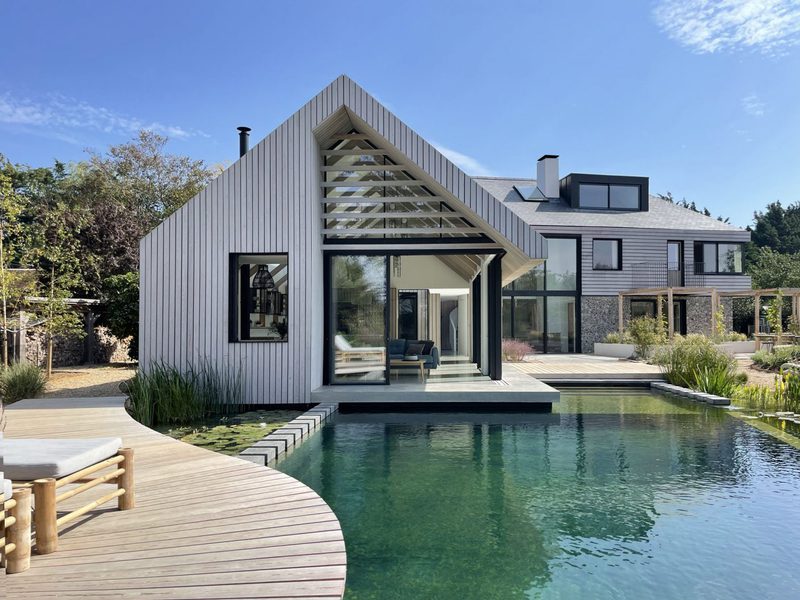
Grey cladding: a versatile, grayscale, nature-inspired look
Grey cladding can provide an ‘at-one-with-nature’ feel to your house or outdoor space. With the environment and sustainability as important as ever, spaces that connect closely with the outdoors and express its innate character are particularly on-trend, a theme that grey cladding achieves effortlessly.
Grey timber cladding provides an outdoor space with a statement that says ‘nothing artificial here’. For many, ‘imperfect’ is the perfect.
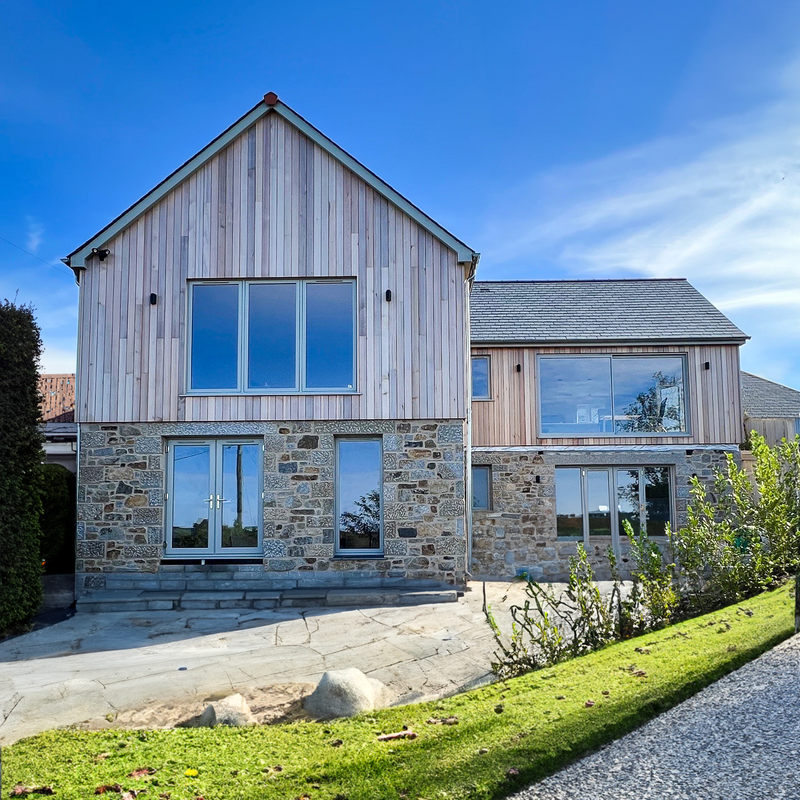
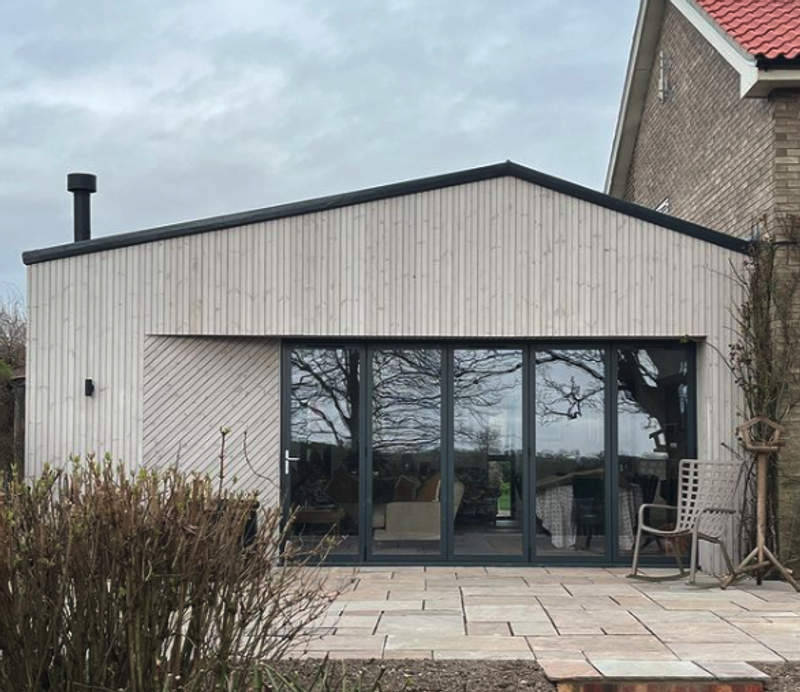
When exposed to the environment, untreated timber will lose its original colour and slowly turn to a silvery-grey, altering the look of the building or space it’s applied to. It is due to the effect of moisture and the sun’s ultraviolet light rays breaking down substances within the wood.
As a result of their natural durability, two of the most popular species for grey cladding are Western Red Cedar and Siberian Larch, although any qualities species can work: Douglas Fir, Alaskan Yellow Cedar but also modified woods like ThermoWood®, Thermo-Ayous and Thermo-Tulipwood CAMBIA®.
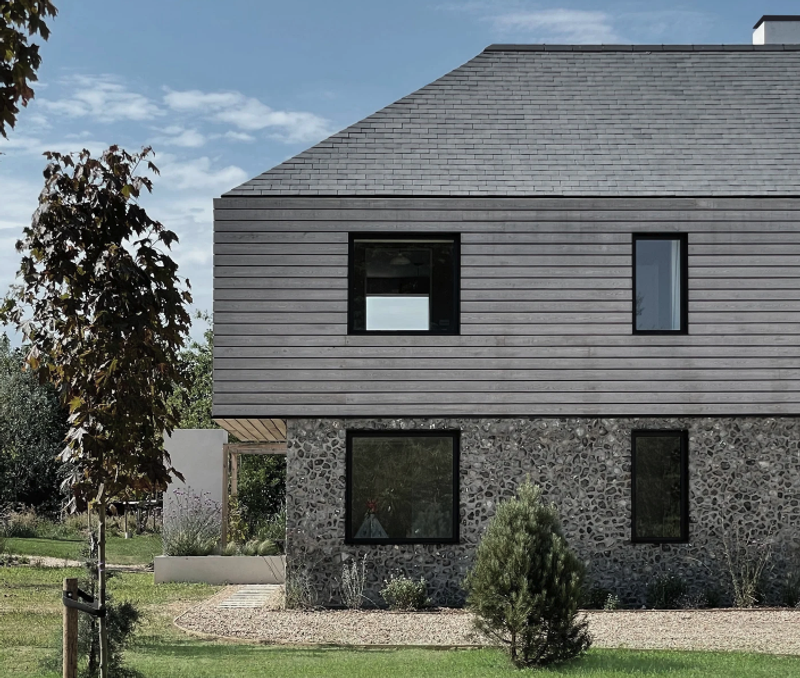
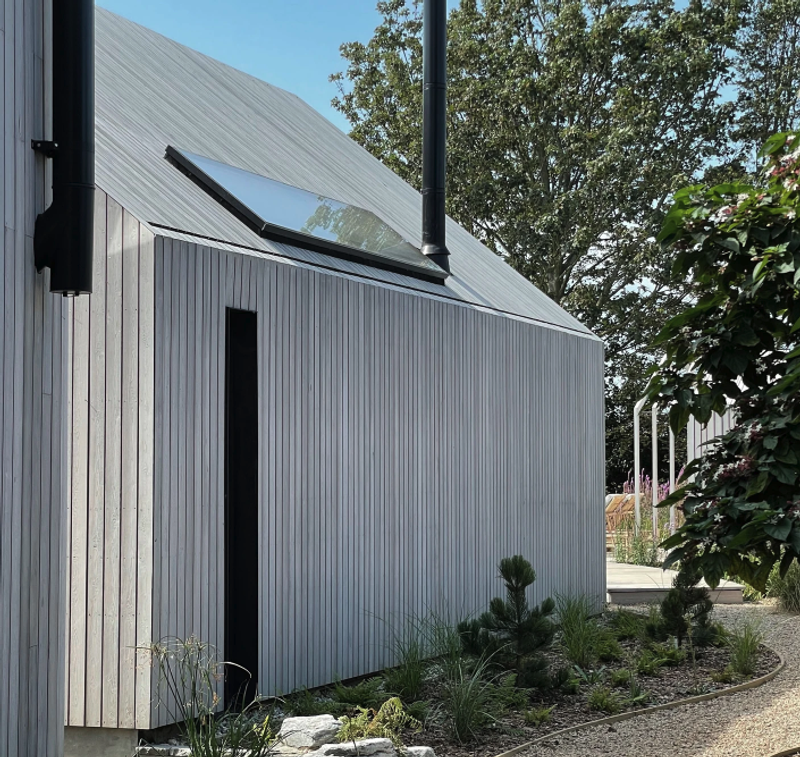
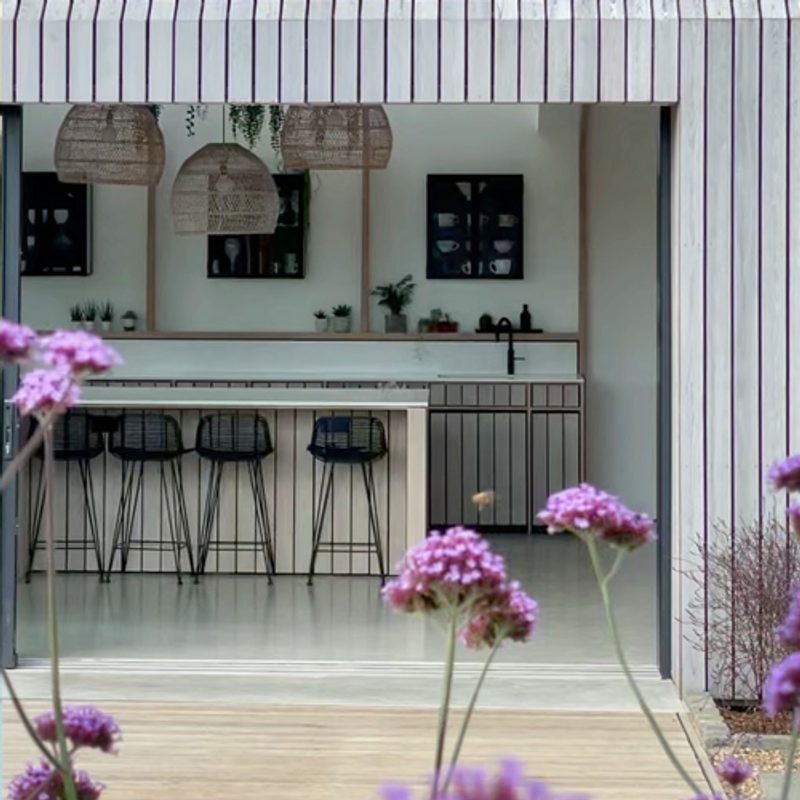
Not only is the fresh, exposed look very popular, but grey is also an aesthetically versatile colour, associated with Scandinavian design as well as providing a flexible neutral backdrop and canvas for the rest of your space. It blends in seamlessly with the outdoors. You might want to incorporate pops of vibrant colour, or even other whites, greys and blacks for a monochromatic theme.
Not only this, but since it won’t change further in appearance, with grey cladding you know exactly what your building is going to look well into the future.
Contrary to what many people mistakenly believe, this bleaching process has nothing to do with decay whatsoever. Weathering is a completely natural process that happens regardless of species; one of timber’s many beautiful features.
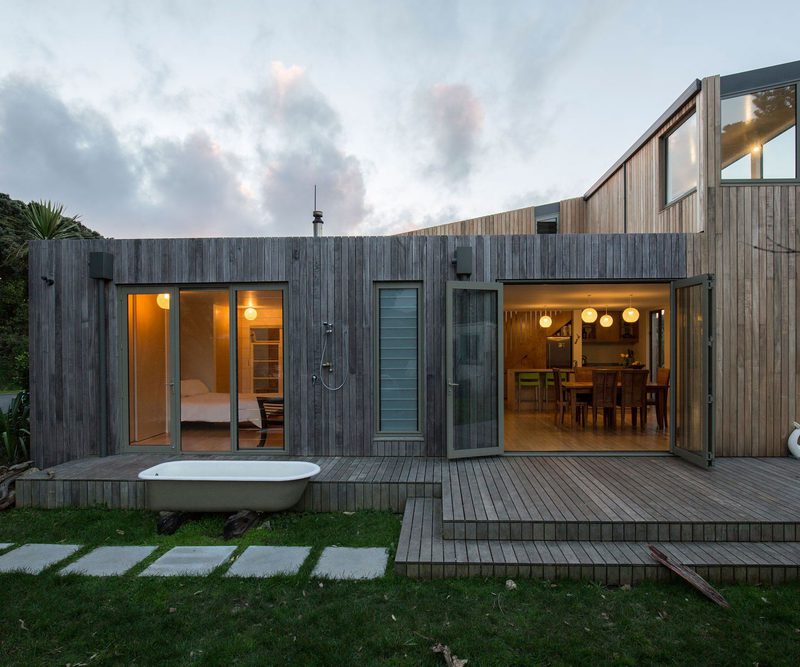
Composite decking can also be used to achieve the grey look. Products like WeatherDek Grey and ReversaDek give you the choice of different shades of grey.
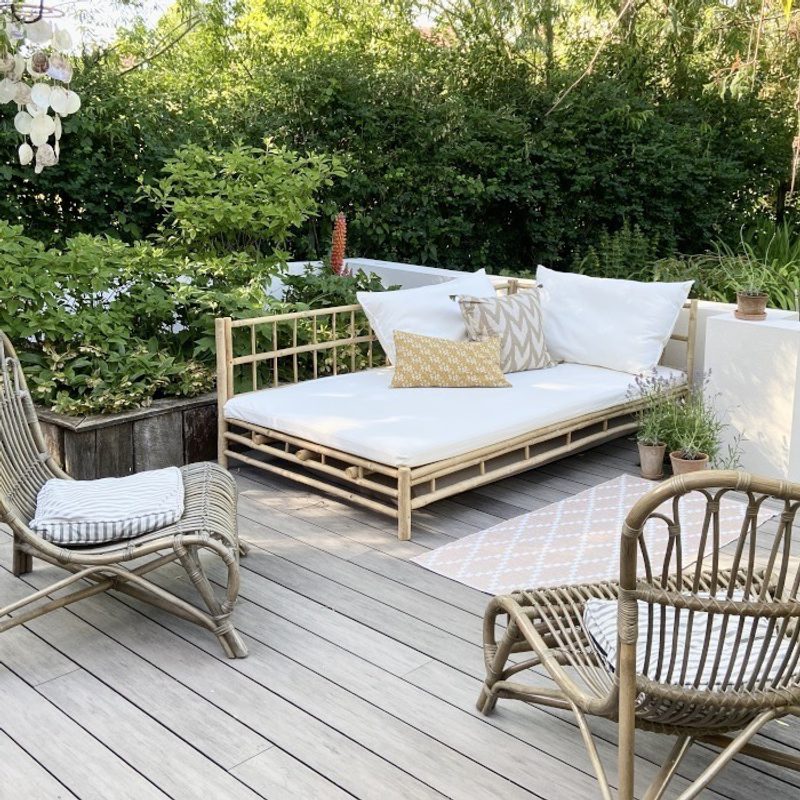
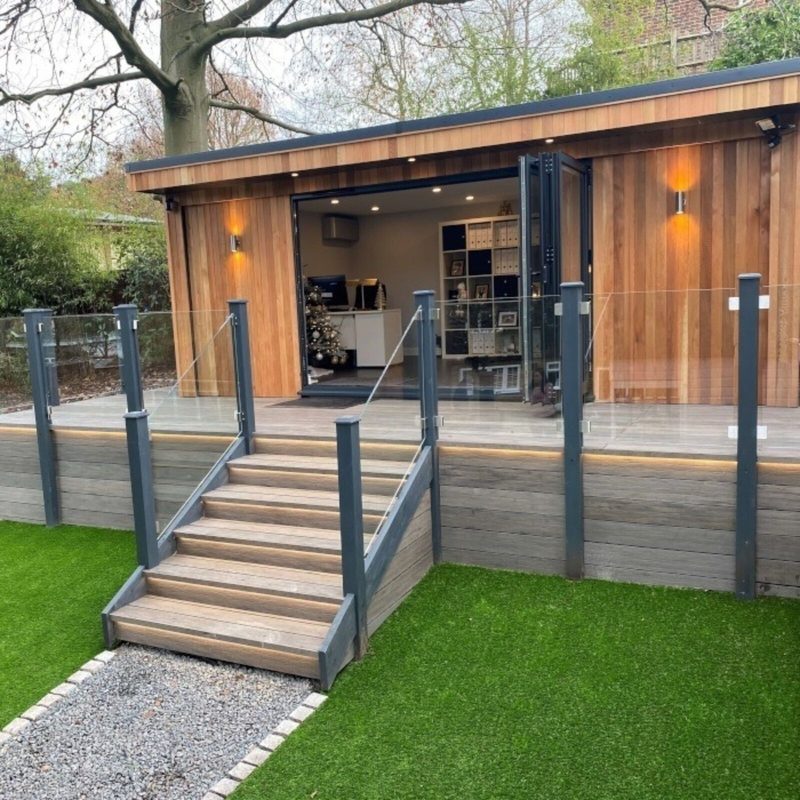
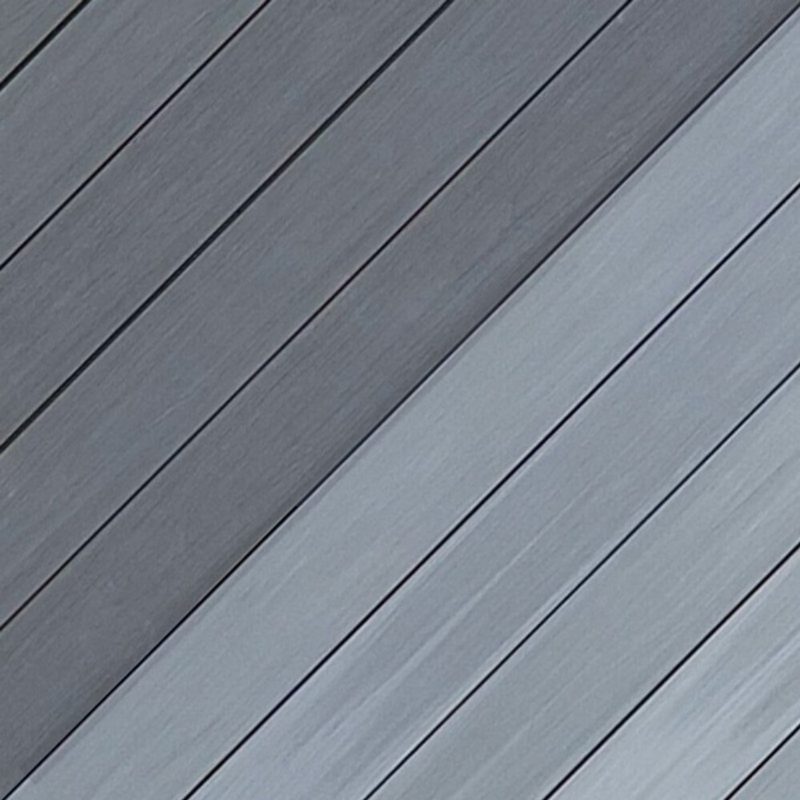
Using grey timber cladding in your house or outdoor space
In a world where the artificial is increasingly shunned, grey timber cladding makes a brilliantly bold, natural statement. Given the popularity of rewilding and connecting to nature, it provides a refreshing, exposed and simple feel for your property.
Grey timber cladding is also exceptionally versatile, easily incorporated into sleeker, modern and Scandi-inspired contemporary designs. It provides a versatile canvas for allowing statement pieces to ‘pop’, or for forming part of a grayscale design but without the extremity or daringness of charred timber.
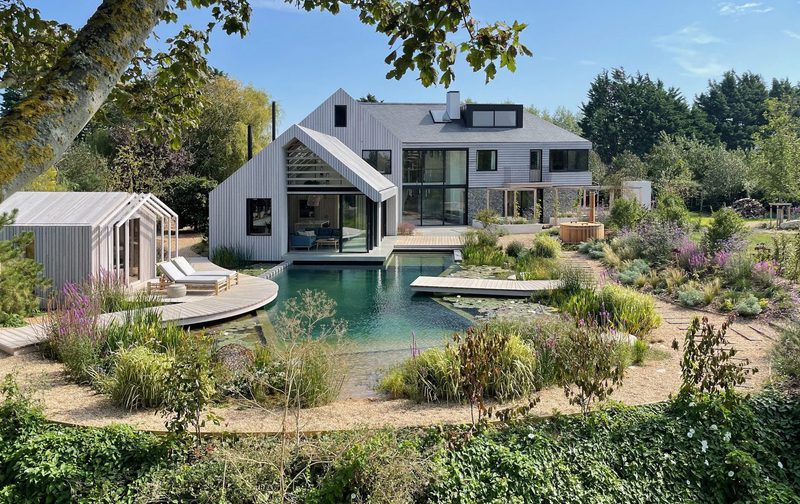
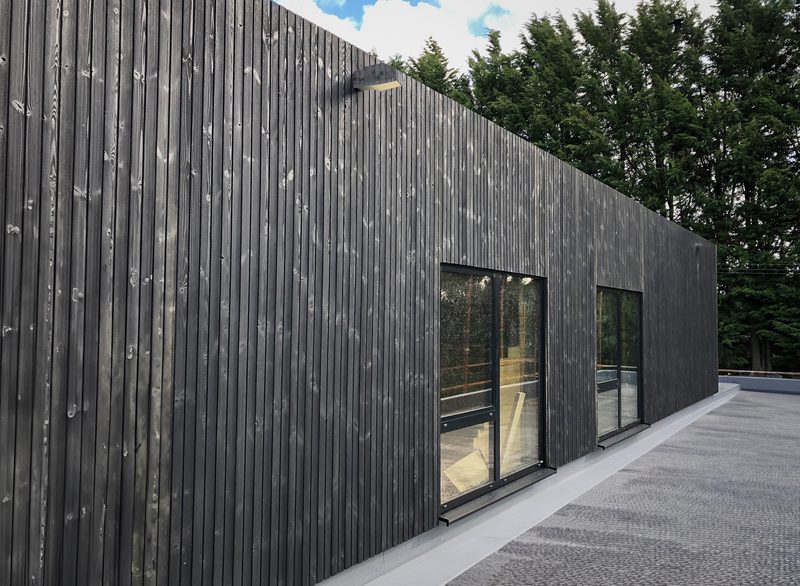
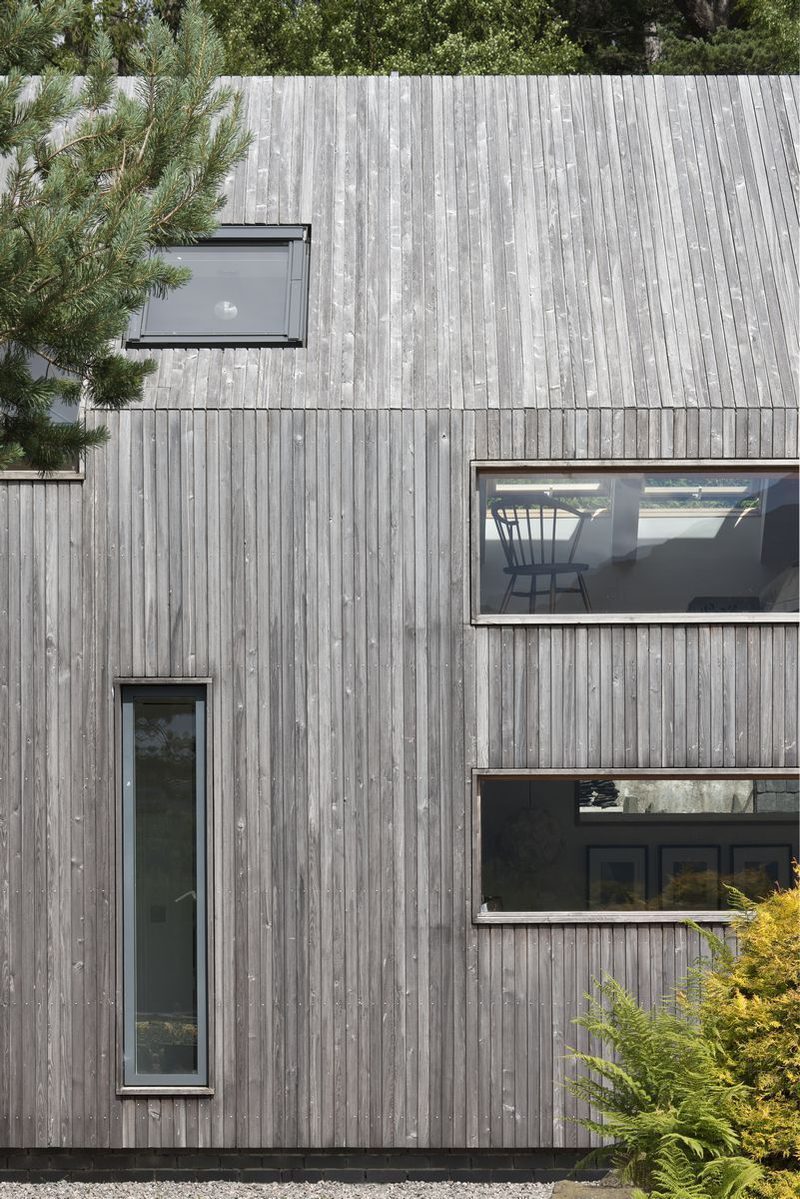
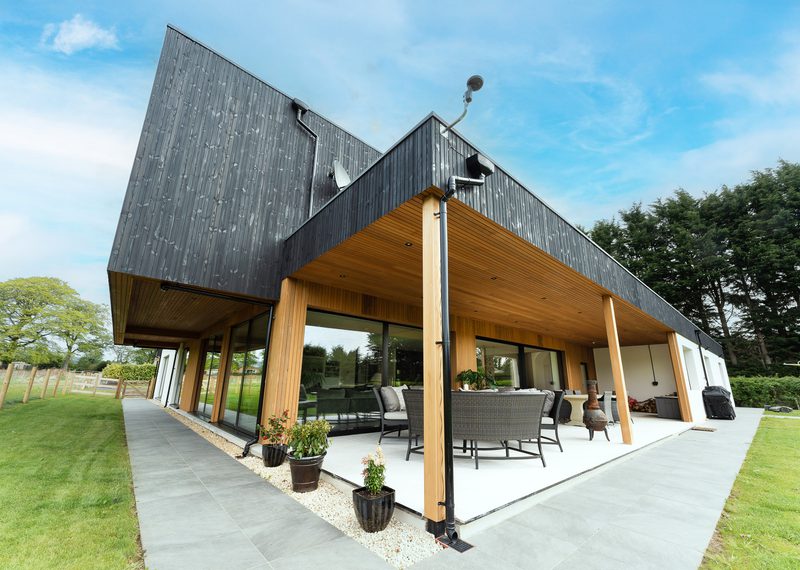
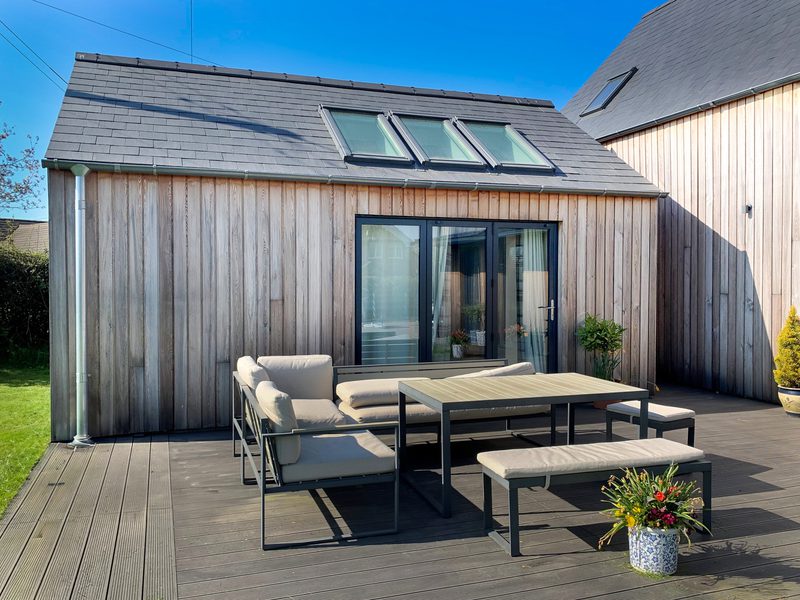
How do I get grey timber cladding?
Depending on the size of your project and how quickly you want the look, there are three ways to achieve grey timber cladding: by choosing a professional factory finish, by simply letting the timber age naturally or by using an agent to speed up the greying process.
A professional factory finish
In our opinion, this is the best way to achieve those gorgeous grey tones — particularly for larger projects that are in the planning phase. Although you may pay a little more, you’ll be guaranteed of a uniform, professionally-completed and beautifully-weathered look for your cladding.
For customers wanting to go down this route to attain those silvery-grey patinas, we can’t recommend SiOO:X enough. This is a state-of-the-art patented woodcare protection system, available in a light grey and mid grey depending on your vision.
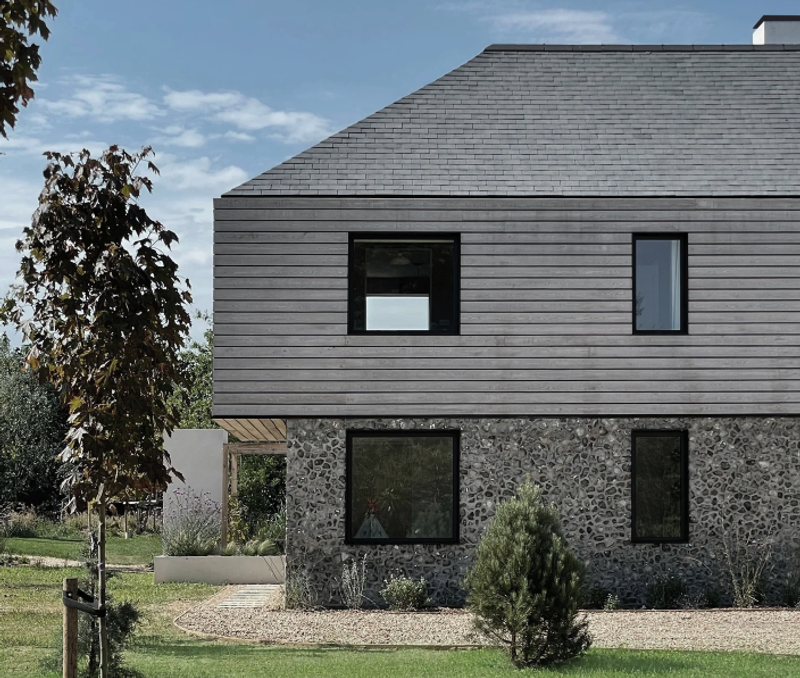
The silicon technology in SiOO:X’s products not only provides your wood with those rustic vibes, but imbues it with excellent outdoor durability and strength. We’ve written in a little more detail about the benefits of a professional factory finish and the options you have.
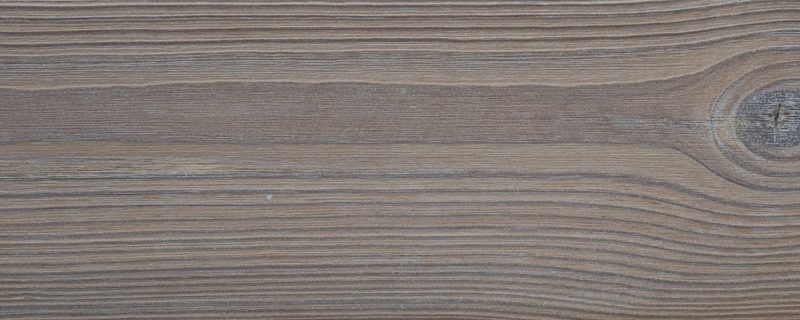
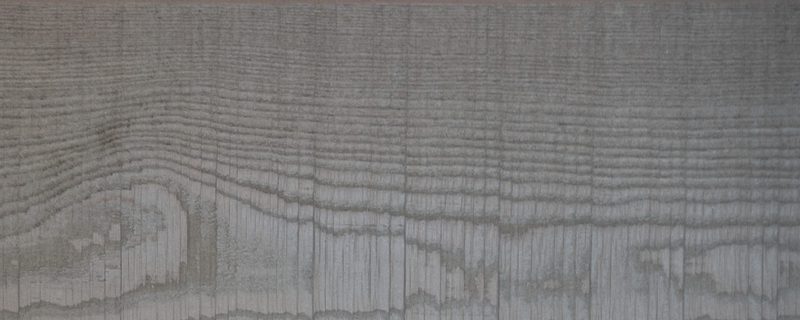
The natural way
If you’re not in a big hurry, the most straightforward, true-to-nature method is to simply let the timber go grey by itself. Just be sure to choose a durable species.
As we mentioned earlier, quality woods like Western Red Cedar, Siberian Larch, Douglas Fir and Alaskan Yellow Cedar (as well as modified options like ThermoWood®, Thermo-Ayous and Thermo-Tulipwood CAMBIA®) don’t strictly need any treatment before being used outdoors.
Over time, the sun’s ultraviolet rays break down the lignin in the wood’s cellular structure. This causes a process of photochemical degradation to take place — going grey, in other woods.
This doesn’t necessarily mean the wood’s strength is compromised; in a quality, well-cared-for wood, the change is entirely aesthetic.
But, for maximum service life, still consider applying a protective finish. One that doesn’t contain UV filters, such as Owatrol H4 Wood, will allow the cladding to age and grey beautifully whilst shielding it from moisture, pollution and dirt damage — all of which can cause warping, cracking or splitting. By treating your timber with such a finish, you’ll also help to prevent drastic colour variations and uneven greying often caused by moisture.
Depending on how exposed your cladding is and even whether you’re in a coastal area, this greying process can take anywhere from a few months to a few years. Cladding that faces south will naturally weather faster than cladding that is north-facing, with timber in wetter climates changing colour faster.
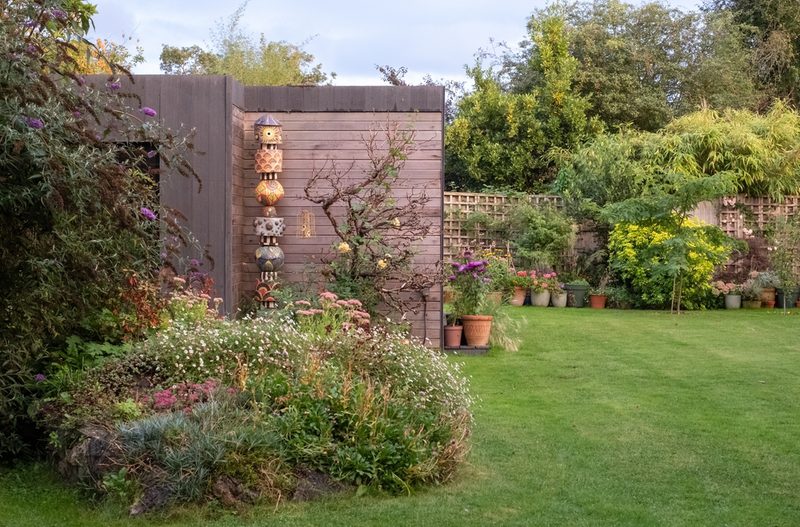
Greying accelerant products
If you don’t have the patience to let nature turn your timber grey, then you can speed things up by applying a dedicated greying accelerant product. There are a number on the market; something like Remmers Pre-Grey is a good shout.
As well as protecting and sealing the timber, these treatments deliver a consistent, quality grey finish on your timber in a very short space of time. For the best possible result, be sure to follow the product manufacturer’s guidelines.
Whilst we wouldn’t particularly recommend them, there are also a number of other DIY methods and at-home preparations for ageing the wood. One of the most popular includes letting steel wool sit overnight in a bath of ordinary white vinegar, before diluting 1:1 with water and applying it to your timber with a brush.
Be sure to test on a small sample or an inconspicuous area first, of course.
If you’re working on a larger project, applying these finishes yourself can become impractical or inconvenient; you might prefer to let your timber grey naturally, or enlist a specialist partner to factory finish your wood prior to delivery.
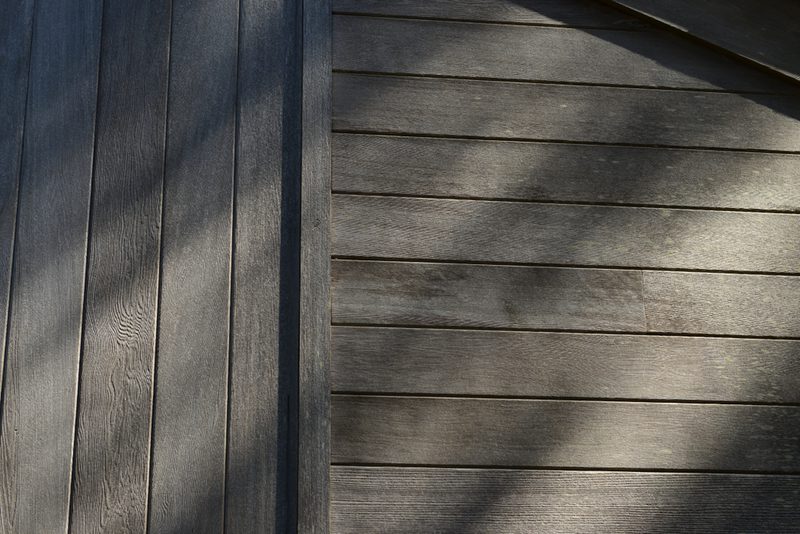
Going grey? Start your cladding enquiry today
We’re a leading UK supplier of quality timber cladding, available in a range of beautiful, quality species — all machined to profile on-site right here in North Yorkshire!
This includes pre-weathered grey finishes using SiOO:X's silicone technology.
Whatever you’re looking for to improve your indoor outdoor space — fencing, decking, oak-framed buildings or sawn timber — we can help.
Get in touch today
